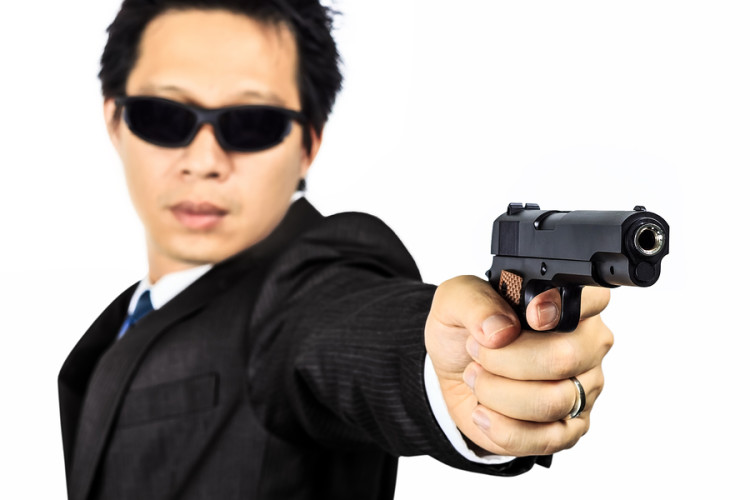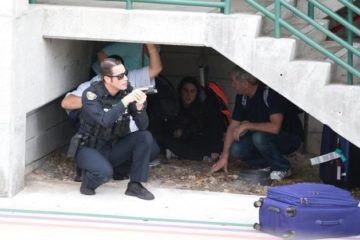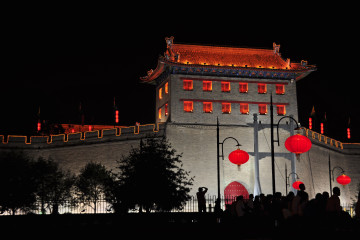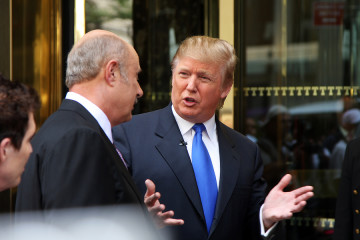The Problem With Using Chicago to Make the Case Against Gun Control

©2015 Bloomberg News
NVTLDV6JTSEF
(Bloomberg) — In the wake of Thursday’s mass shooting in Oregon, a familiar political pattern has emerged, with Democrats advocating for tougher gun laws and Republicans arguing that such legislation won’t make a difference in curbing firearm deaths.
To make the latter point, two of the current GOP presidential candidates, New Jersey governor Chris Christie and Donald Trump, have both invoked Chicago in their arguments, pointing to that city’s tough gun laws and its high rates of gun violence as proof that the problem cannot be legislated away.
“You look at Chicago,” Trump said on ABC’s This Weekon Sunday. “It’s got the toughest gun laws in the United States. You look at other places where they have gun laws that are very tough, they do generally speaking worse than anybody else.”
On the same program, Christie offered a similar argument.
“In many of the places around this country where they have the toughest gun laws, they have the highest violent crime rates. And we focus on a tragedy like this. It’s an awful tragedy. It’s terrible. But it is the exception to violence in America. Violence in America that’s happened on our streets in our cities, like Chicago, up 19 percent, the murder rate,” Christie said. “And you have some of the most aggressive gun laws in cities like that.”
Chicago’s high rates of gun violence have been well- documented. In 2014, there were 2,587 shooting victims in in the city, according to the Chicago Tribune. The New York City Police Department recorded 1,381 victims in the same time period, and New York has around three times as many people as the “Windy City.”
But advocates for tougher restrictions say Trump’s and Christie’s arguments do not take into account two key features of the Chicago’s gun landscape. The first is that, though it’s hard to get a gun in Chicago, it’s much easier to get one in the city’s immediate vicinity. The second feature is the city’s high level of gang activity, and that gangs are both adept at procuring guns illegally and prone to involvement in shooting incidents.
“I think that it’s more likely that if Chicago did not have tough gun laws they would have higher rates of gun violence than they do have,” said Philip Cook, a Duke public policy professor and economist who works with the University of Chicago Crime Lab, leading its multi-city underground gun market study.
Cook recently studied the origins of guns recovered in Chicago between 2009 and 2013 using data from the Bureau of Alcohol, Tobacco, and Firearms and Explosives. Of the more than 7,000 guns he studied, “the great majority came from the people who were members of gangs,” Cook said, adding that “the gang conflict in Chicago has been particularly lethal over the decades and part of the reason is those organizations are skilled at accessing guns.”
A lot of that access comes from outside Illinois. Cook said he found that 60 percent of guns recovered in connection with an arrest were from out of state. Twenty-four percent of the total pool of guns came from Indiana, which is “not regulated at all,” he said. Chicago gangs often have connections to gangs in Gary, Indiana, and the two cities almost butt up against each other.
The study also found that 22 percent of the recovered guns came from parts of Cook County outside the city, where gun dealers and gun shows are legal.
Gun rights activists argue that Chicago’s position, as an island of regulation, endangers its residents who are unwilling to secure a gun illegally.
“The gun laws in Chicago only restrict the law-abiding citizens and they’ve essentially made the citizens prey,” said Richard Pearson, executive director of the Illinois State Rifle Association to the New York Times in 2013.
Over a longer period the Chicago Police Department had similar findings to Cook. Between 2002 and 2012, CPD tracked the origin of 50,000 guns, finding that more than half of them came into the city from other states, the New York Times reported. Indiana and Mississippi were the two biggest feeders with a combined 24 percent of recovered guns originating from the two states. Almost a third of those 50,000 guns came from Cook County. At the time, Chicago Mayor Rahm Emanuel explained the flip side of Christie’s and Trump’s arguments, saying that the lack of regulation around the city was the cause of the violence.
“Our gun strategy is only as strong as it is comprehensive, and it is constantly being undermined by events and occurrences happening outside the city—gun shows in surrounding counties, weak gun laws in neighboring states like Indiana and the inability to track purchasing,” Emanuel told the New York Times at the time. “This must change.”
Republicans like Trump and Christie are not incorrect in saying that Chicago has tough gun regulations as well as a high number of shooting incidents, just as Democrats like Emanuel have a point that lax gun restrictions in the surrounding communities help facilitate the flood of weapons into the city.
Asked about the Oregon shooting on theToday Show on Tuesday, Florida Senator Marco Rubio did not mention Chicago specifically, but reinforced the idea that criminals who want guns will usually get them. “What I know is this,” Rubio said. “Many of the proposals that are out there now on gun control would not have prevented that attack or some of the others we’ve seen in the past. Unfortunately in cases of mental illness or in cases of someone who just wants a gun to carry out a crime, they’re not going to follow the law.”
For Democrats like presidential front-runner Hillary Clinton, that explanation doesn’t cut it. Instead, they feel it’s time to amend the laws that make places like Chicago an island on gun restrictions.
“On the Republican side, [Donald] Trump was asked about it and said something like, ‘You know, things like that happen in the world and Governor Bush said, ‘Yeah stuff happens,'” Clinton said Monday at a campaign rally in Manchester, N.H. “No, that’s an admission of defeat and surrender to a problem that is killing 33,000 Americans. It’s time for us to say wait a minute, we are better than this, our country is better than this and there are steps we can take that improve gun safety and further the prevention of violence by guns.”
To contact the author of this story: Ali Elkin in New York at aelkin5@bloomberg.net To contact the editor responsible for this story: David Knowles at dknowles9@bloomberg.net







No Comment